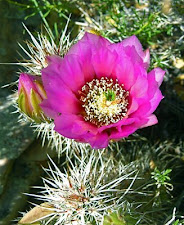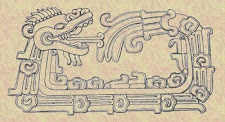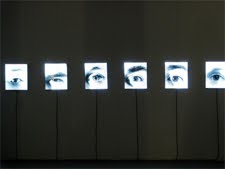I guess I shouldn't be embarrassed that an increasing number of my cultural references are coming from television these days, like the following poem by Johann Wolfgang von Goethe that I picked up from Boardwalk Empire, because the writers behind these shows are so knowledgeable and talented that I'd be honored to pick any one of their brains for books, playlists, etc. In fact, I will admit that I've been adding a lot of songs to my iPod from Boardwalk Empire, Breaking Bad, True Blood, etc. And these are not just lowly pop songs - I discovered 19th century cellist Pablo Casals from Boardwalk the other day and downloaded his Bach Cello Suites which are beautifully haunting in their sparsity and sound really good turned way up.
I will also say that having been a literature major, I actually did read Goethe in college and remember this poem, The Erl-King, because it has the same romantic, otherworldliness of, say, Goblin Market, and being an unabashed fantasy geek, I've always loved poems about that half-light between worlds when the veil is temporarily lifted and some poor soul is inevitably kidnapped by goblins or faeries. But in the context of Boardwalk Empire this poem struck me in a profound new way… as a modern parable about the relationship between fathers and sons. How the father dismisses the son's vision of the Erl-King as fancy… as "mist rising over the plain." And in the end, of course, the son's vision, his fears, prove to be very real and the fact that his dad was unable or refused to see them results in tragedy.
How many fathers from my dad's generation acted this very same way? Dismissed the less rigid, less pragmatic views of their sons as self-indulgence and "fancy" and lost them because of it? Having just written a memoir that includes my own struggles with my father I've heard back from reader after reader relating to this part of my story. Maybe this is a problem of a past generation, maybe the "touchy feely" dads of today are suffering the opposite fate - seeing too many "mists" themselves and their kids are the ones rebelling back the other way - foreswearing the Erl-King for a new realism. But even so the warning remains the same - dismiss the way a son from the next generation sees the world and risk losing him to some other King - mortal or faerie.
The Erl-King
WHO rides there so late through the night dark and drear?
The father it is, with his infant so dear;
He holdeth the boy tightly clasp'd in his arm,
He holdeth him safely, he keepeth him warm.
"My son, wherefore seek'st thou thy face thus to hide?"
"Look, father, the Erl-King is close by our side!
Dost see not the Erl-King, with crown and with train?"
"My son, 'tis the mist rising over the plain."
"Oh, come, thou dear infant! oh come thou with me!
Full many a game I will play there with thee;
On my strand, lovely flowers their blossoms unfold,
My mother shall grace thee with garments of gold."
"My father, my father, and dost thou not hear
The words that the Erl-King now breathes in mine ear?"
"Be calm, dearest child, 'tis thy fancy deceives;
'Tis the sad wind that sighs through the withering leaves."
"Wilt go, then, dear infant, wilt go with me there?
My daughters shall tend thee with sisterly care
My daughters by night their glad festival keep,
They'll dance thee, and rock thee, and sing thee to sleep."
"My father, my father, and dost thou not see,
How the Erl-King his daughters has brought here for me?"
"My darling, my darling, I see it aright,
'Tis the aged grey willows deceiving thy sight."
"I love thee, I'm charm'd by thy beauty, dear boy!
And if thou'rt unwilling, then force I'll employ."
"My father, my father, he seizes me fast,
Full sorely the Erl-King has hurt me at last."
The father now gallops, with terror half wild,
He grasps in his arms the poor shuddering child;
He reaches his courtyard with toil and with dread,--
The child in his arms finds he motionless, dead.
travel, philosophy, art, culture
Blog Archive
Music
Video: Derek Paravicini - Musical Genius
Video: M Ward - Chinese TranslationMusic
Video: Jennifer Grout - sings Umm Kulthum on "Arabs Got Talent"
Photos
Baja Surf Trip
Topanga Canyon, Fall 2010
Devils Tower Sequence
Spring/Summer 2010 Travel Pics
More Travel Pics
My Summer Home in Oregon
Clark Little Surf Photography
Videos
Music: M Ward - Chinese Translation
Interview: linguist David Harrison
Music: Derek Paravicini - Musical Genius
Video: Derek Paravicini - Musical Genius
Video: M Ward - Chinese TranslationMusic
Video: Jennifer Grout - sings Umm Kulthum on "Arabs Got Talent"
Photos
Baja Surf Trip
Topanga Canyon, Fall 2010
Devils Tower Sequence
Spring/Summer 2010 Travel Pics
More Travel Pics
My Summer Home in Oregon
Clark Little Surf Photography
Videos
Music: M Ward - Chinese Translation
Interview: linguist David Harrison
Music: Derek Paravicini - Musical Genius
Video: One in 8 Million: photo essays of individual New Yorker's lives (from The New York Times)
Music: Jennifer Grout - Sings Umm Kulthum on "Arabs Got Talent"
Poetry
Music: Jennifer Grout - Sings Umm Kulthum on "Arabs Got Talent"
Poetry
Denice Cacace - Haiku
John Keats - Bright Star
John Updike - A Rescue
Billy Collins - Thesaurus
John Dunn - Handwritten Letter
John Dunn - Gettin' All Poetiky
Johann Wolfgang Von Goethe - The Erl-King
Books
Edward Abbey - Manhattan Twilight, Hoboken Night (from The Journey Home)
Don Delillo - Underworld
Jorge Luis Borges - The Secret Miracle (From Labyrinths)
Robert Penn Warren - All The King's Men
John Keats - Bright Star
John Updike - A Rescue
Billy Collins - Thesaurus
John Dunn - Handwritten Letter
John Dunn - Gettin' All Poetiky
Johann Wolfgang Von Goethe - The Erl-King
Books
Edward Abbey - Manhattan Twilight, Hoboken Night (from The Journey Home)
Don Delillo - Underworld
Jorge Luis Borges - The Secret Miracle (From Labyrinths)
Robert Penn Warren - All The King's Men
Essays
Multiple authors: Fifteen Unforgettable Movie Moments (from Salon)
John Dunn: LA Love Letter
John Dunn: Impressions of the Badlands, Black Hills and Little Bighorn
Matt Power: Mississippi Drift - River Vagrants in the Age of Wal-Mart (from Harper's)
Kevin Fedarko: High in Hell - An Epic Drug Fueled Travel Story (from Esquire)
John Dunn: Getting Myspaced - Self Discovery Through Social Networking
John Bradley: Golf Bro Will Mackenzie - Making it Cool to Watch Golf Again (from Outside)
John Dunn: Golf Course Review: Old Macdonald - Doak's Encore at Bandon
John Dunn: LA Love Letter
John Dunn: Impressions of the Badlands, Black Hills and Little Bighorn
Matt Power: Mississippi Drift - River Vagrants in the Age of Wal-Mart (from Harper's)
Kevin Fedarko: High in Hell - An Epic Drug Fueled Travel Story (from Esquire)
John Dunn: Getting Myspaced - Self Discovery Through Social Networking
John Bradley: Golf Bro Will Mackenzie - Making it Cool to Watch Golf Again (from Outside)
John Dunn: Golf Course Review: Old Macdonald - Doak's Encore at Bandon

"A weird, lovely, fantastic object out of nature like Delicate Arch has the curious ability to remind us - like rock and sunlight and wind and wildflowers - that out there is a different world, older and greater and deeper by far than ours, a world which sustains the little world of man as sea and sky surround and sustain a ship. For a little while we are again able to see, as the child sees, a world of marvels. For a few moments we discover that nothing can be taken for granted, for if this ring of stone is marvelous, then all which shaped it is marvelous, and our journey here on Earth, able to see and touch and hear in the midst of tangible and mysterious things-in-themselves, is the most strange and daring of all adventures." - Edward Abbey, Desert Solitaire

"It is impossible to convey the life-sensation of any given epoch of one's existence - that which makes its truth, its meaning, its subtle penetrating essence. It is impossible. We live, as we dream, alone." - Joseph Conrad, Heart of Darkness

"Full circle from the tomb of the womb to the womb of the tomb we come, an ambiguous, enigmatical incursion into a world of solid matter that is soon to melt from us like the substance of a dream." - Joseph Campbell, Hero with a 1000 Faces

"The cactus of the high desert is a small grubby, obscure and humble vegetable associated with cattle dung and overgrazing, interesting only when you tangle with it the wrong way. Yet from this nest of thorns, this snare of hooks and fiery spines, is born once each year a splendid flower. It is unpluckable and except to an insect almost unapproachable, yet soft, lovely, sweet, desirable, exemplifying better than the rose among thorns the unity of opposites" - Edward Abbey, Desert Solitaire

"He knew that the very memory of the piano falsified still further the perspective in which he saw the elements of music, that the field open to the musician is not a miserable stave of seven notes, but an immeasurable keyboard on which, here and there only, separated by the thick darkness of its unexplored tracts, some few of the millions of keys of tenderness, of passion, of courage, of serenity, which compose it, each one differing from all the rest as one universe differs from another, have been discovered by a few great artists who do us all a service, when they awaken in us the emotion corresponding to the theme they have discovered, of showing us what richness, what variety lies hidden, unknown to us, in that vast, unfathomed and forbidden night of our soul." - Marcel Proust, Swann's Way

"Perhaps it is not-being that is the true state, and all our dreams of life are inexistent. We shall perish, but we have as hostages these phrases of music, these divine captives who will follow and share our fate. And death in their company is somehow less bitter, less inglorious, perhaps even less probable." - Marcel Proust, Swann's Way

"The creature was very young. He was alone in a dread universe. I crept on my knees and crouched beside him. It was a small fox pup from a den under the timbers who looked up at me. God knows what had become of his brothers and sisters. His parents must not have been home from hunting. He innocently selected what I think was a chicken bone from an untidy pile of splintered rubbish and shook it at me invitingly... the universe was swinging in some fantastic fashion around to present its face and the face was so small that the universe itself was laughing.
It was not a time for human dignity. It was a time only for the careful observance of amenities written behind the stars. Gravely I arranged my forepaws while the puppy whimpered with ill-concealed excitement. I drew the breath of a fox's den into my nostrils. On impulse, I picked up clumsily a whiter bone and shook it in teeth that had not entirely forgotten their original purpose. Round and round we tumbled and for just one ecstatic moment I held the universe at bay by the simple expedient of sitting on my haunches before a fox den and tumbling about with a chicken bone. It is the gravest, most meaningful act I shall ever accomplish, but, as Thoreau once remarked of some peculiar errand of his own, there is no use reporting it to the Royal Society." - Loren Eiseley, The Star Thrower
It was not a time for human dignity. It was a time only for the careful observance of amenities written behind the stars. Gravely I arranged my forepaws while the puppy whimpered with ill-concealed excitement. I drew the breath of a fox's den into my nostrils. On impulse, I picked up clumsily a whiter bone and shook it in teeth that had not entirely forgotten their original purpose. Round and round we tumbled and for just one ecstatic moment I held the universe at bay by the simple expedient of sitting on my haunches before a fox den and tumbling about with a chicken bone. It is the gravest, most meaningful act I shall ever accomplish, but, as Thoreau once remarked of some peculiar errand of his own, there is no use reporting it to the Royal Society." - Loren Eiseley, The Star Thrower

The moment I stepped out the front door I was faced again with Manhattan. There it was, oh splendid ship of concrete and steel, aluminum, glass and electricity, forging forever up the dark river. (The hudson - like a river of oil, filthy and rich, gleaming with silver lights.) Manhattan at twilight: floating gardens of tender neon, the lavender towers where each window glittered at sundown with reflected incandescence, where each crosstown street became at evening a gash of golden fire, and the endless flow of the endless traffic on the West Side Highway resembled a luminous necklace strung round the island's shoulders. - Edward Abbey, Manhattan Twilight, Hoboken Night

Sometimes I see something so moving I know I'm not supposed to linger. See it and leave. If you stay too long, you wear out the wordless shock. Love it and trust it and leave. - Don Delillo, Underworld

Yes. Because they were human men. They were trying to write down the heart's truth out of the heart's driving complexity, for all the complex and troubled hearts which would beat after them. - William Faulkner, The Bear

He picks up speed and seems to lose his gangliness, the slouchy funk of hormones and unbelonging and all the stammering things that seal his adolescence. He is just a running boy, a half-seen figure from the streets, but the way running reveals some clue to being, the way a runner bares himself to consciousness, this is how the dark-skinned kid seems to open to the world, how the bloodrush of a dozen strides bring him into eloquence. - Don Delillo, Underworld

If somewhere beneath the blood, the past must beat in me to make a rhythm of survival for itself - to go on as this half-life which echoes as a second pulse inside the ticking moments of my existence - if this is what must be, why is the pattern of remembered instants so uneven, so gapped and rutted and plunging and soaring? I can only believe it is because memory takes its pattern from the earliest moments of the mind, from childhood. And childhood is a most queer flame-lit and shadow-chilled time. - Ivan Doig, This House of Sky

The storm front towered above them and the wind was cool on their sweating faces. They slumped bleary-eyed in their saddles and looked at one another. Shrouded in the black thunderheads the distant lightning glowed mutely like welding seen through foundry smoke. As if repairs were under way at some flawed place in the iron dark of the world. - Cormac McCarthy, All the Pretty Horses
.jpg)
Men believe the cure for war is war as the curandero prescribes the serpent's flesh for its bite. - Cormac McCarthy, All the Pretty Horses

Big production, no story, as they say around the movie lots. I guess Sylvia is happy enough, though not necessarily with me. In our circle that's not too important. There's always something to do if you don't have to work or consider the cost. It's no real fun, but the rich don't know that. They never had any. They never want anything very hard except maybe somebody else's wife and that's a pretty pale desire compared to the way a plumber's wife wants new curtains for the living room. - Raymond Chandler, The Long Goodbye
The charged atmosphere made every little thing stand out as a performance, a movement distinct and vastly important. It was one of those hypersensitive moments when all your automatic movements, however long established, however habitual, become separate acts of will. You are like a man learning to walk after polio. You take nothing for granted, absolutely nothing at all. - Raymond Chandler, The Long Goodbye
We live entirely, especially if we are writers, by the imposition of a narrative line upon disparate images, by the "ideas" with which we have learned to freeze the shifting phantasmagoria which is our actual experience. - Joan Didion, The White Album

Seattle rain smells different from New Orleans rain... New Orleans rain smells of sulfur and hibiscus, trumpet metal, thunder and sweat. Seattle rain, the widespread rain of the Great Northwest, smells of green ice and sumi ink, of geology and silence and minnow breath. - Tom Robbins, Jitterbug Perfume

"There was a special pallor in the face of the New York emigres. Lasher and Grappa in particular. They had the wanness of obsession, of powerful appetites confined to small spaces. Murray said that Eliot Nasher had film noir face. His features were sharply defined, his hair perfumed with some oily extract. I had the curious thought that these men were nostalgic for black-and-white, their longings dominated by achromatic values, personal extremes of postwar urban gray." - Don Delillo, White Noise







No comments:
Post a Comment